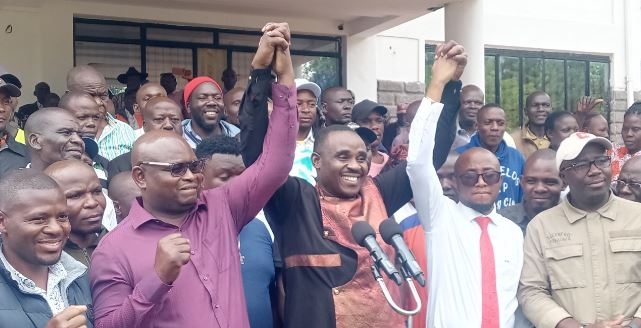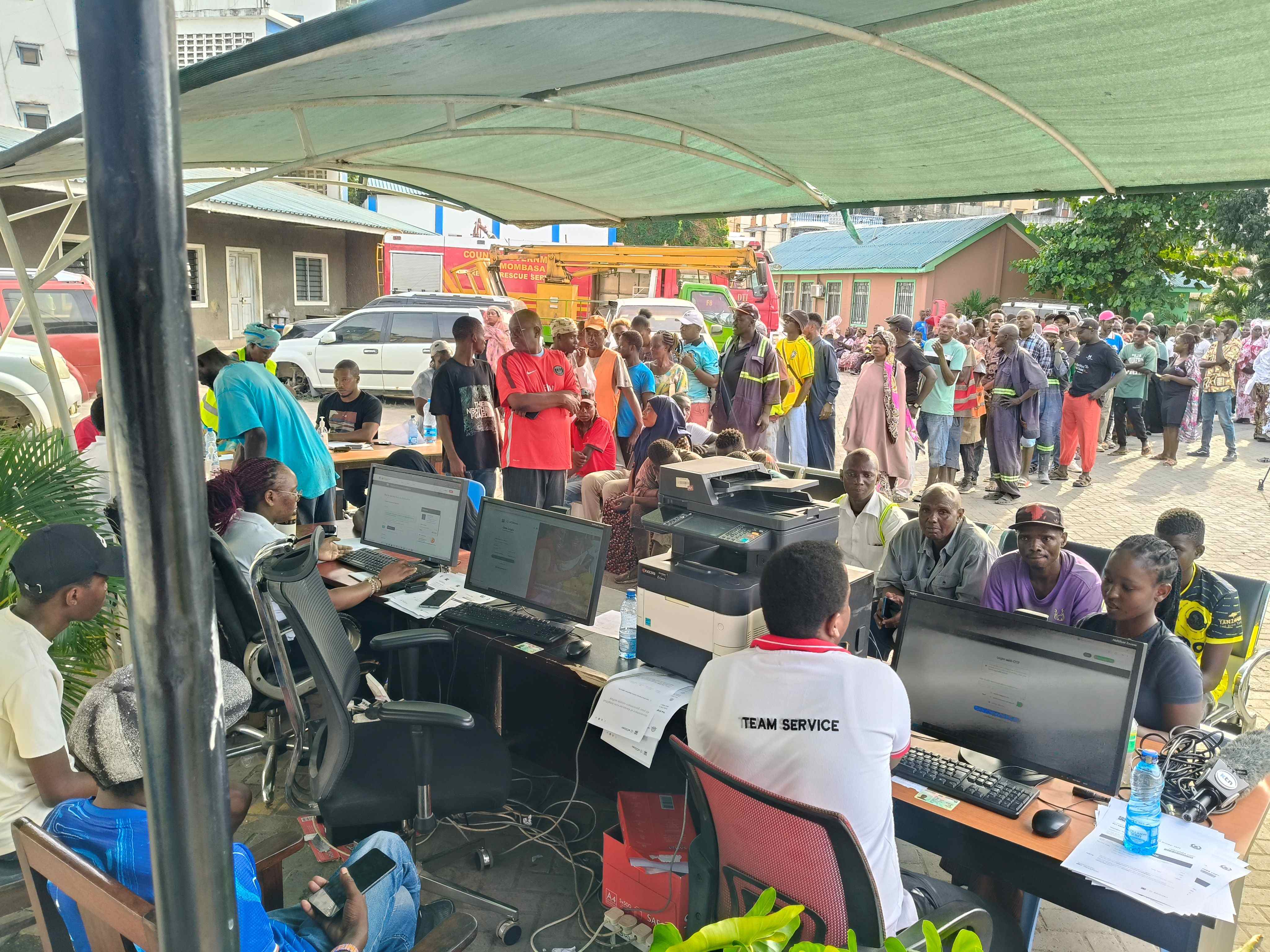 Waste collection groups queue for Certificates of
Good Conduct / BRIAN OTIENO
Waste collection groups queue for Certificates of
Good Conduct / BRIAN OTIENO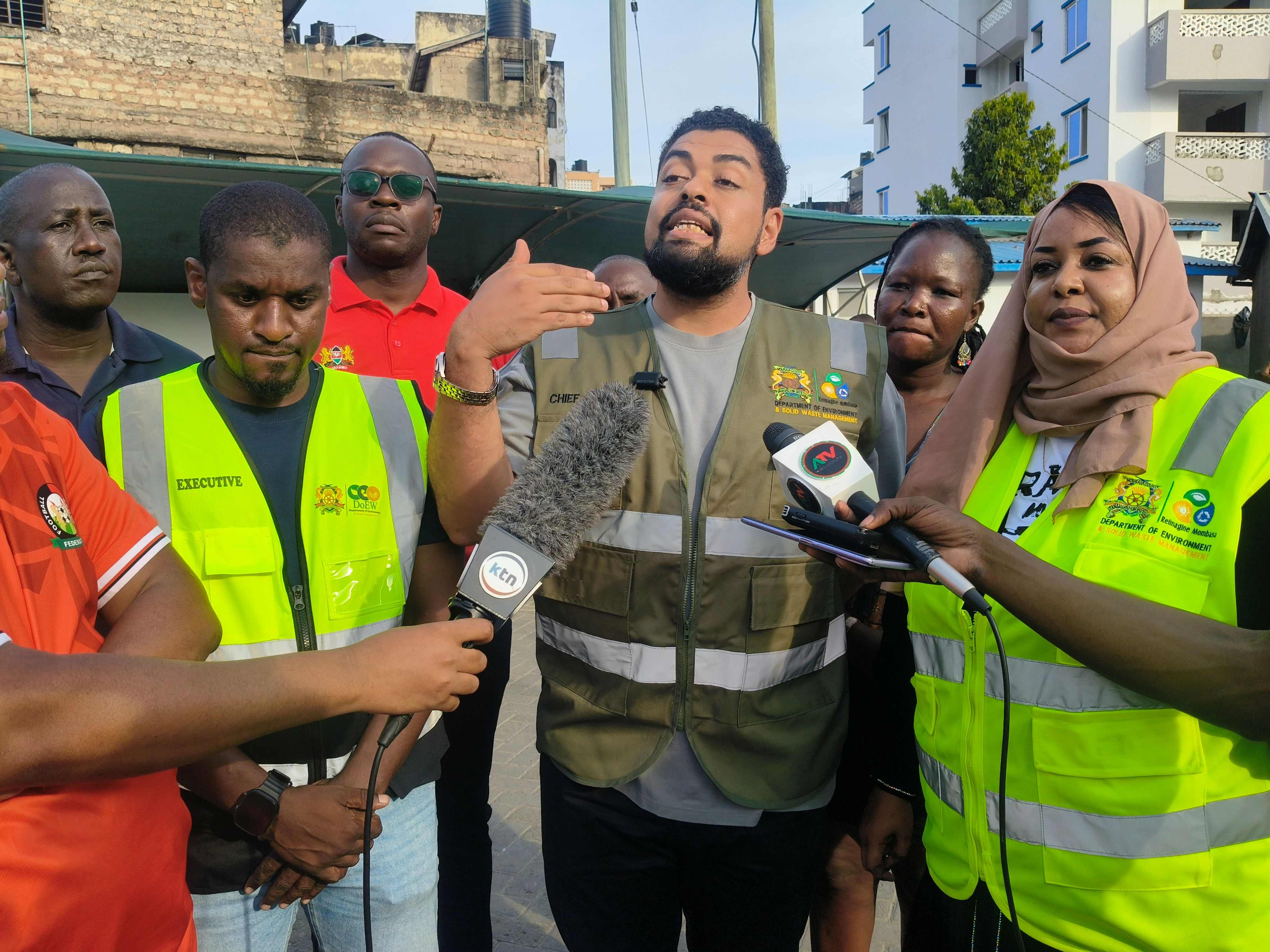 Environment chief officer Hamid Shehan on Monday /
BRIAN OTIENO
Environment chief officer Hamid Shehan on Monday /
BRIAN OTIENO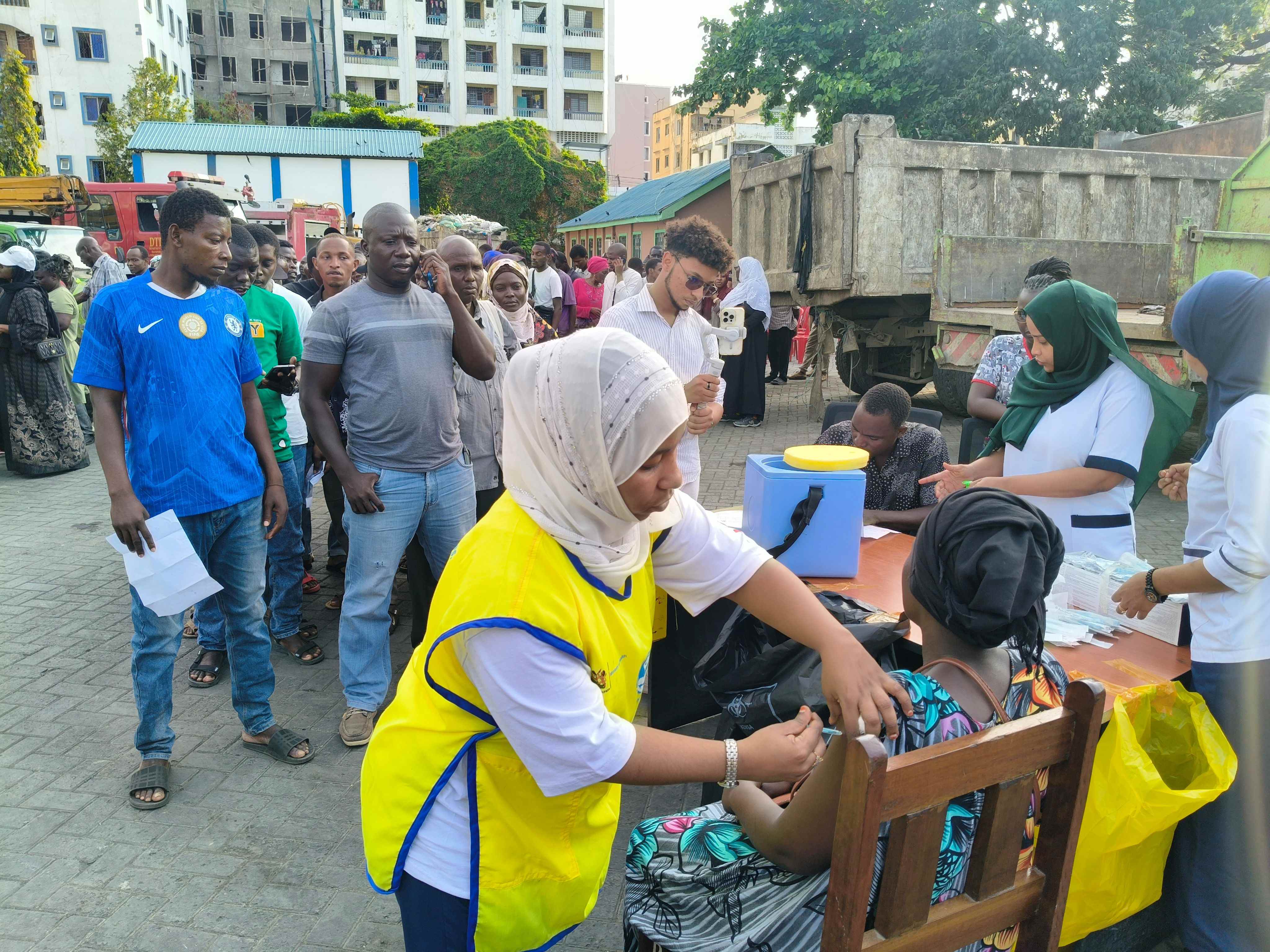 A youth gets vaccinated ahead of waste collection
contract / BRIAN OTIENO
A youth gets vaccinated ahead of waste collection
contract / BRIAN OTIENO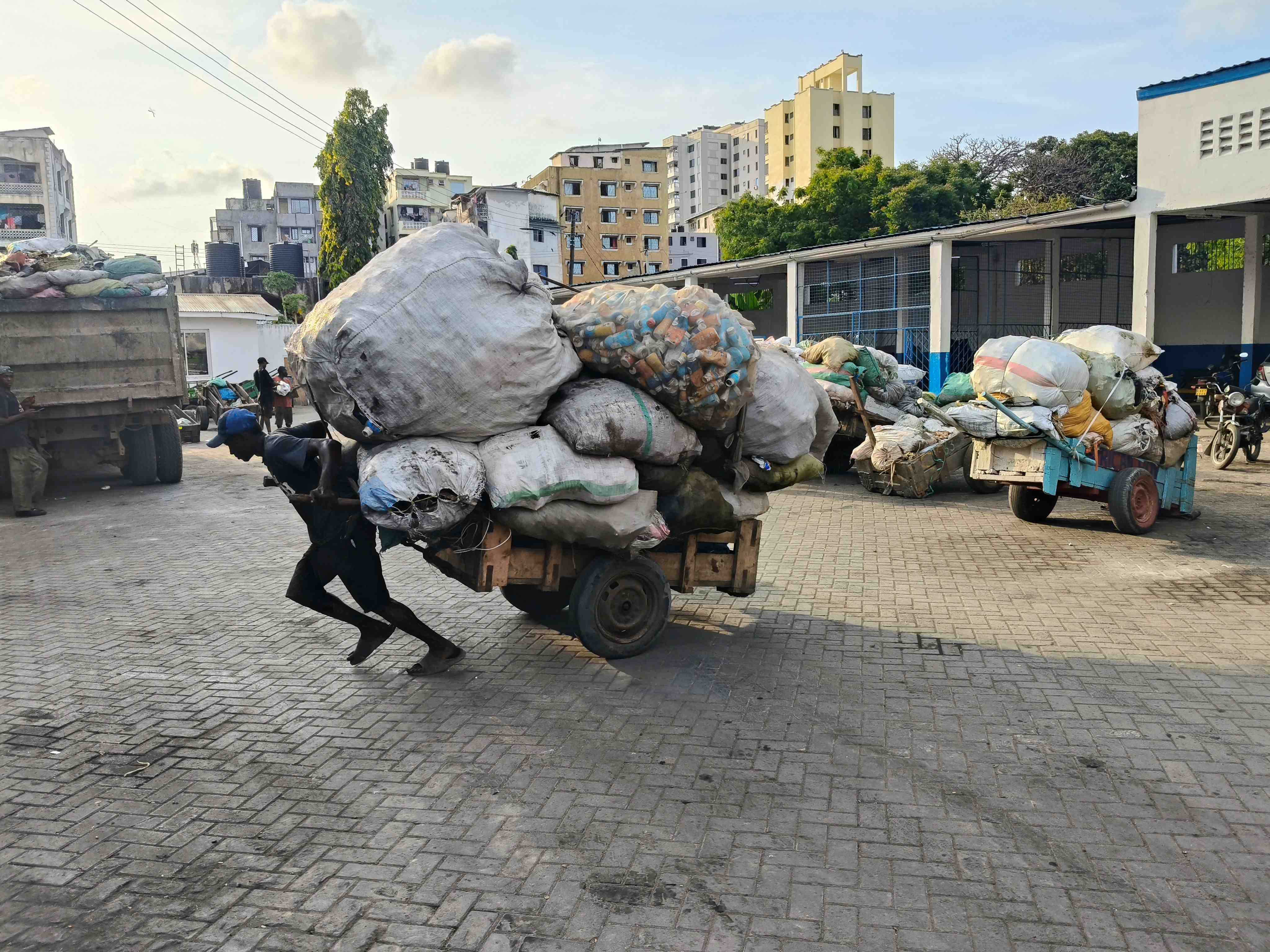 A group takes collected waste to the transfer
station at the environment department yard / BRIAN OTIENO
A group takes collected waste to the transfer
station at the environment department yard / BRIAN OTIENO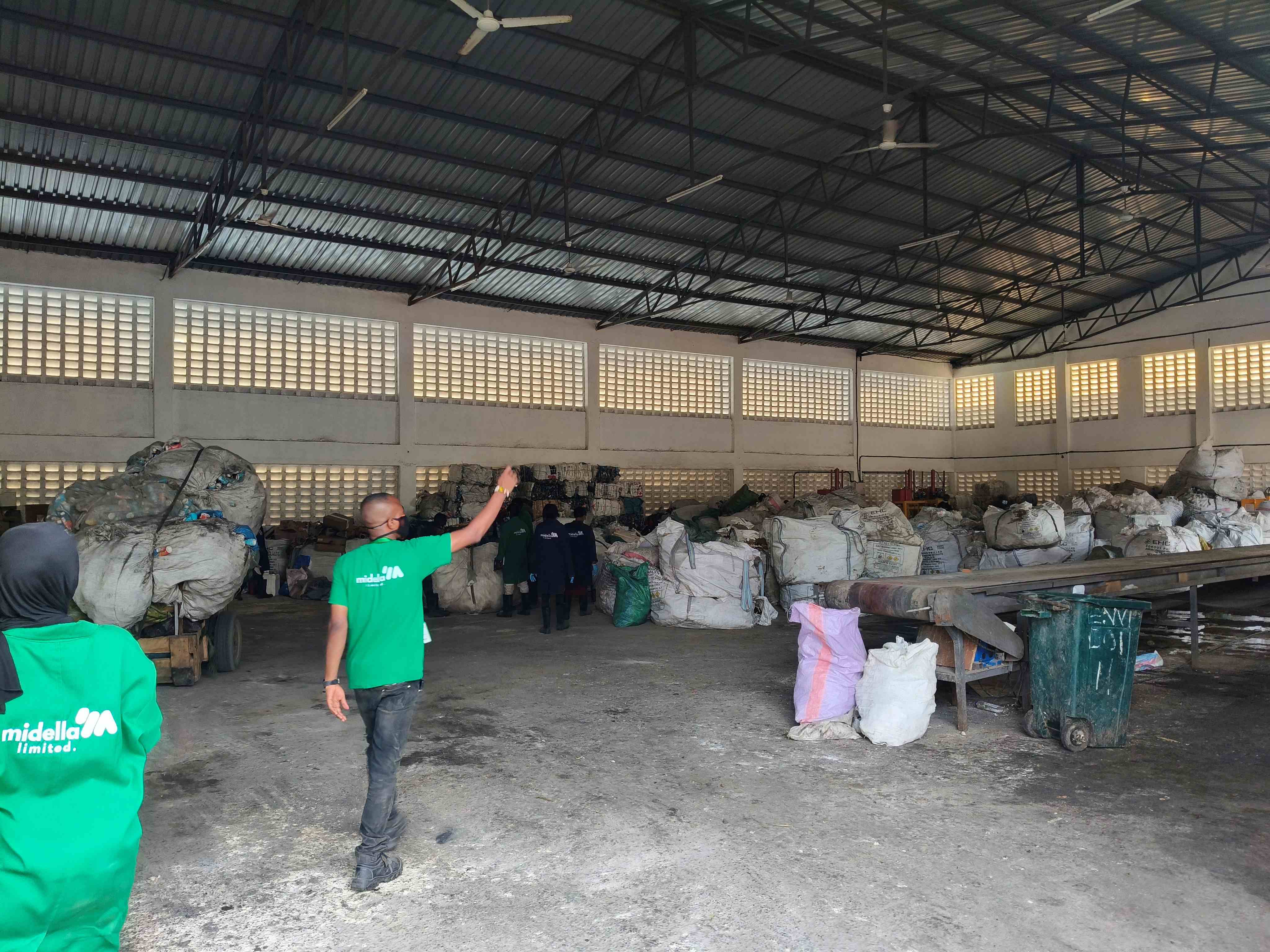 A waste transfer station at the environment
department yard / BRIAN OTIENO
A waste transfer station at the environment
department yard / BRIAN OTIENO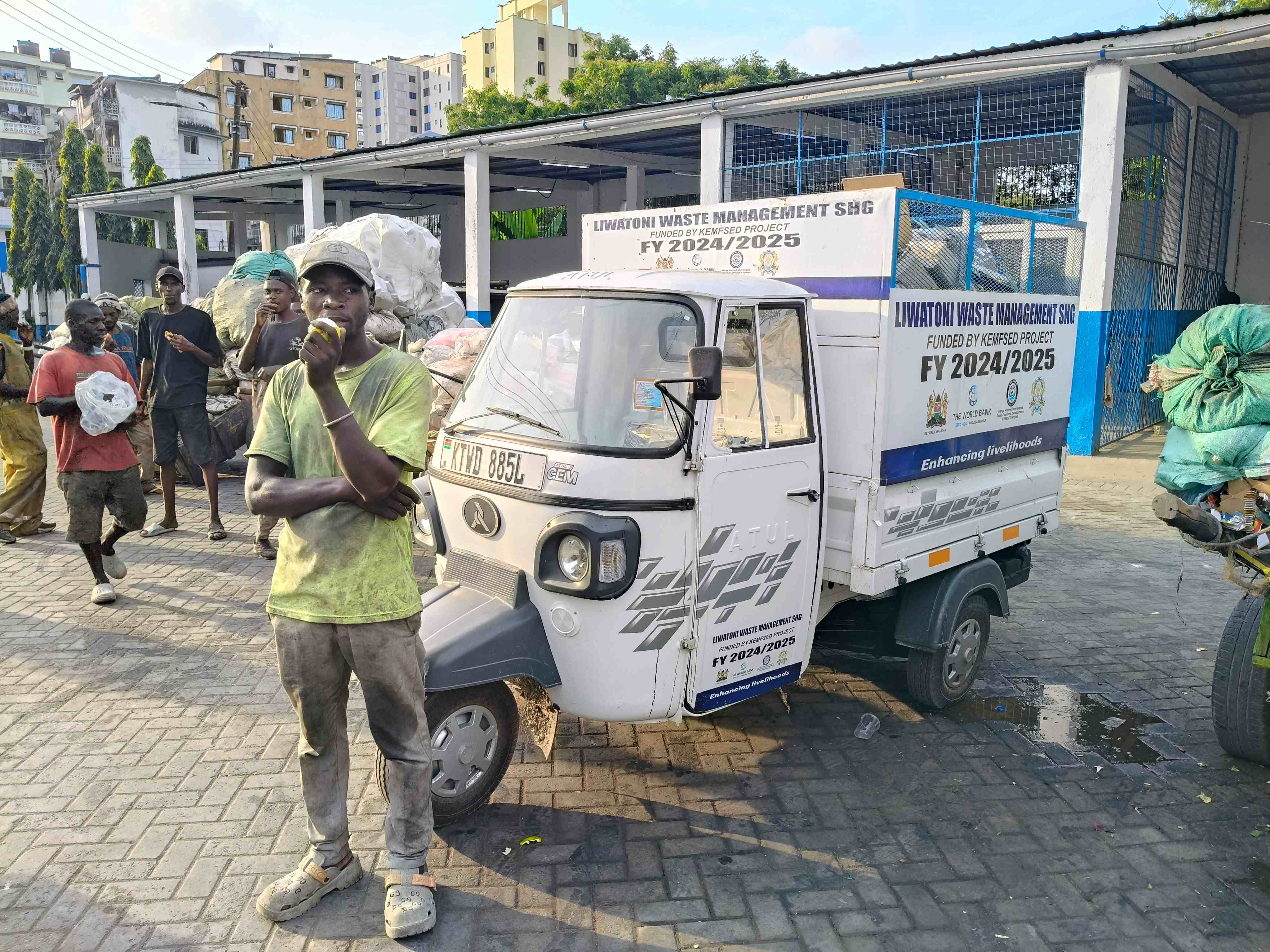 A tuktuk that will be collecting garbage from the
households / BRIAN OTIENO
A tuktuk that will be collecting garbage from the
households / BRIAN OTIENO
More than 3,000 Mombasa youth will earn up to
Sh150,000 monthly following a joint venture deal between the Mombasa county
government and a private investor.
The county has signed a Sh17 billion deal with Ghana’s
Jospong Group of Companies (JGC) to sustainably modernize waste collection and
management in the county for a period of 35 years.
Mombasa produces between 900 and 1,200
tonnes of waste per day, with organic waste
making up about 68 per cent of the waste.
The county's waste
management infrastructure can only formally collect around 460 tonnes (52 per
cent) to 704 tonnes (56 per cent) daily.
This leaves a
substantial portion of uncollected waste to be dumped in uncontrolled sites.
A 2024 report by
the Haki Yetu Organization identified over 74 active illegal dumpsites in
Mombasa County, with the highest numbers in Likoni (22)
and Kisauni (11).
However, the county
government has been actively working to shut these illegal dumpsites down and
by August this year, more than 50 had been shut down.
Access to clean water, and proper sewerage and
drainage services were among Governor Abdulswamad Nassir’s 10-point campaign
manifesto, which he is keen to fully implement.
Hussein “Amadoh” Mohamed,
Governor Nassir’s right hand man and the county’s lands executive, sewerage and
solid waste management has been one of Mombasa’s biggest headaches.
“But the county government is
there to find solutions to such problems. That is why we sat down as a county
executive committee and ratified this deal so that Mombasa becomes a model
county,” Amadoh said.
He said Mombasa has to be a
model county that is habitable by locals and an attraction to both domestic and
international tourists.
On Monday, the over
500 youth were issued with their Certificates of Good Conduct, also known as
Police Clearance Certificates, in readiness for the jobs courtesy of the county
government.
They were also
vaccinated against potential diseases because they will be dealing with
garbage.
Mombasa county environment
executive Kibibi Abdalla said the deal between JGC and Mombasa county will be
implemented first on a three-month trial where some 41 youth groups, with about
500 youth, will get opportunities to collect and manage waste from across the
county.
“In these three months we will be looking at how
the implementation works and where the teething problems will be. After these
three months, we will go full blast where some 200 groups will be involved and
some 3,000 youth will get jobs,” she said.
Each group will be paid between Sh100,000 and
Sh150,000 depending on some parameters that the county has come up with.
Households will not need to pay a shilling for
waste collection.
For the trial
period, each group will each be provided with a special tuktuk that will be
used for waste collection, courtesy of the joint venture deal.
The county will
also receive four special compactor trucks that will be used to compact the
waste at collection points.
They are currently
in Nairobi having final touches being done on them by Isuzu.
“These compactor
trucks are the most ideal waste collectors. Currently we are using 10-ton tippers,
which are not supposed to be collecting waste.
“One compactor
truck will be carrying the same load as four tippers, meaning waste collection
will be more effective and efficient,” county environment chief officer Hamid
Shehan said.
Shehan said the
county has been divided into 600 zones for the purposes of waste collection
where each of the 41 groups will get several zones within which to operate.
“Waste will be
collected from homes into transfer centres. In Mvita, the transfer center will
be at the environment department yard, where the waste will be sorted before
being compacted and transferred to Mwakirunge,” Kibibi said.
Each waste
collection group will be collecting garbage from homes twice a week. The groups
will also be thorough-cleaning their zones once a week, and fumigation will be
done once a month.
Shehan said private
waste collectors will also get opportunities to collect waste.
“This is not about
waste management only. It is about improving the health of our people,” he
said.
He said the garbage
trucks collect waste in three schedules. The first schedule is at 3.30am, the
second at 7.30am and the third is at 2pm.
These are the times
the trucks collect garbage from various collection points before transferring
them to Mwakirunge where the main dumpsite is.
“We are thinking of
adding a fourth schedule at around 11.30am because we have noticed that now
that people are seeing the garbage being collected, there is significantly more
garbage that we collect.
“This means the
extra garbage that we are witnessing is what was ending up creating illegal
dumpsites,” Shehan said.
He said with the
new compactor trucks coming up, there will be less trips, and less fuel used
thus saving more funds.
The chief officer
the waste transfer stations will be sorting out the garbage into recyclables
and organic waste.
The recyclable
waste will be recycled through contracted companies while the organic waste
will be taken to Mwakirungi dumpsite which will also be turned into a sanitary
landfill.
A sanitary landfill
is an engineered facility designed to safely dispose of solid waste by
isolating it from the environment to prevent contamination of soil, air and
groundwater.
In sanitary
landfills, waste is spread in thin layers, compacted and covered daily with
soil to minimize odour, pests and fire hazards.
Landfills
incorporate systems to collect and treat leachate (liquid waste) and to capture
and potentially use landfill gas like methane.
The deal with JGC was finalized after a 26-man
delegation from Mombasa, led by Nassir, visited Ghana in early August to
explore JGC’s waste management model and replicate it in Mombasa.
This followed JGC’s own delegation from Ghana to
Mombasa in July.
Zoomlion Ghana Ltd, a flagship waste management
company under JGC, is strengthening its pan-African expansion through new
strategic partnerships across the continent.
The company provides sustainable waste management
solutions across the continent.
INSTANT ANALYSIS:
The Sh17 billion waste management deal has raised a storm in the Mombasa county assembly with MCAs questioning the legality of the deal. They say they were not involved in such a joint venture contrary to the Urban Areas and Cities Act 201, which mandates the county to seek approval of the county assembly for any such deal.











